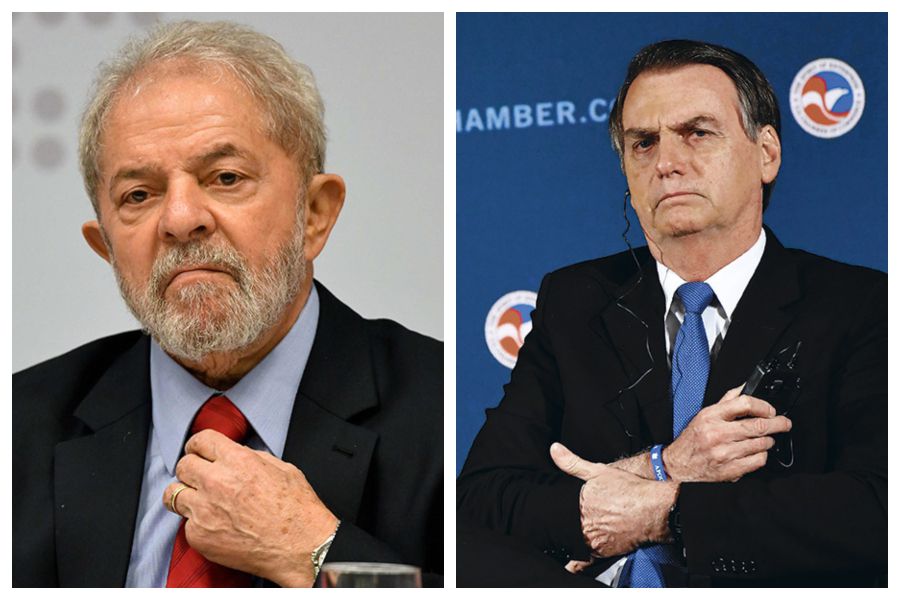
Next October, Brazil will decide who will be its next President, and everything indicates that the runoff will be defined between the current President, Jair Bolsonaro, and the former President (2003-2011) Luiz Inácio “Lula” Da Silva, since both concentrate 75% of the votes according to the polls.
A few days ago, the former judge and former Minister of Justice, Sergio Moro, who was the third favorite in the polls, lowered his presidential candidacy. “I will be a soldier of democracy to recover the dream of a better Brazil,” he said when announcing his decision. Moro’s resignation was announced on the same day he made official the change from the right-wing Podemos party to Union Brasil, a center-right bloc.
It should be recalled that Moro became popular as a judge for conducting the corruption cases of Operation Lava Jato and imprisoning Lula for two convictions that were later annulled by the Supreme Court, which in another subsequent process, declared that Moro acted in a “biased” way when judging the former president.
Thus, the race for the presidential seat in Brazil continues its course with Bolsonaro and Lula in the lead, demonstrating the polarization of the country.
Among the latest developments, Lula announced his rapprochement with the center-right, presenting Geraldo Alckmin as his vice-presidential candidate, which came as a surprise to many Brazilians, and still does not convince the left-wing of the Workers’ Party (PT) of the former president, despite his justifications where he states that “we need Alckmin’s experience and my experience to fix Brazil”.
But undoubtedly, one of the issues that worry Brazilians and should be a topic in this campaign is corruption. In fact, the latest Transparency International Corruption Perception Index ranks Brazil below the world average with 38 points and in 96th place out of 180 countries.
During the pandemic, several scandals came to light, such as alleged irregularities in the acquisition of vaccines or in the construction of campaign hospitals, which led Bolsonaro to be questioned worldwide. In this context, an investigative commission of the Brazilian Senate approved a lapidary report on Bolsonaro’s management of the pandemic, accusing him, among other things, of crimes against humanity.
Although the Senate committee does not have the power to make formal accusations, it sent its report to the Attorney General’s Office, which will analyze the accusations, which the president described as “antics”.
But in addition, other alleged cases of corruption have been known, such as the one involving the senator and son of the President, Flavio Bolsonaro, who faced an inquiry for the crimes of a criminal organization, embezzlement, money laundering, and misappropriation, but which in November 2021 was annulled by the court.
Among the latest scandals, the investigation against President Bolsonaro and his Minister of Education, Milton Ribeiro, who is also a pastor of a Presbyterian church, was revealed to suspicions of influence-peddling in favor of evangelical pastors. After the facts became known, Ribeiro resigned from his post last March.
It should be recalled that the now-former minister had taken office in July 2020, replacing economist Carlos Alberto Decotelli, who was in office for only five days and resigned amid allegations of falsehoods in his résumé.
And, among the latest developments, the Federal Police is accusing the Minister of the Civil House, Ciro Nogueira – equivalent to the position of Prime Minister – of having received a bribe from the world’s largest meat company, JBS, and having incurred in crimes of passive corruption and money laundering, after allegedly using this illicit money to ensure the support of the Progressive Party (PP) for the re-election of former President Dilma Rousseff in 2014.
Specifically, JBS would have paid about US$ 8.5 million to the PP and more than US$ 1 million in-kind to Nogueira, through a supermarket. The owner of the supermarket acknowledged the facts.
The investigation involves the minister’s brother, Gustavo Nogueira, accused of money laundering, and the former minister of the Communication Secretariat of the Rousseff government, Edinho Silva, for corruption for having requested the bribes from the company.
Nogueira’s defense said the Federal Police report “is strange since the conclusion is based solely on allegations that are not corroborated by any external evidence”. Now, it will be the Federal Supreme Court (STF) to forward the report to the Attorney General’s Office, which will decide whether to open a case, close it, or request new investigations.
Given the radicalized political and social environment in Brazil, recently, the UN Special Rapporteur, Clément Nyaletsossi Voule, expressed his concern about possible acts of violence during the campaign for the upcoming presidential elections, for which he requested guarantees. Voule especially warned about violence against political and social leaders and some candidates, especially women and representatives of black and LGTBIQ+ communities.
Photo by: La Tercera














